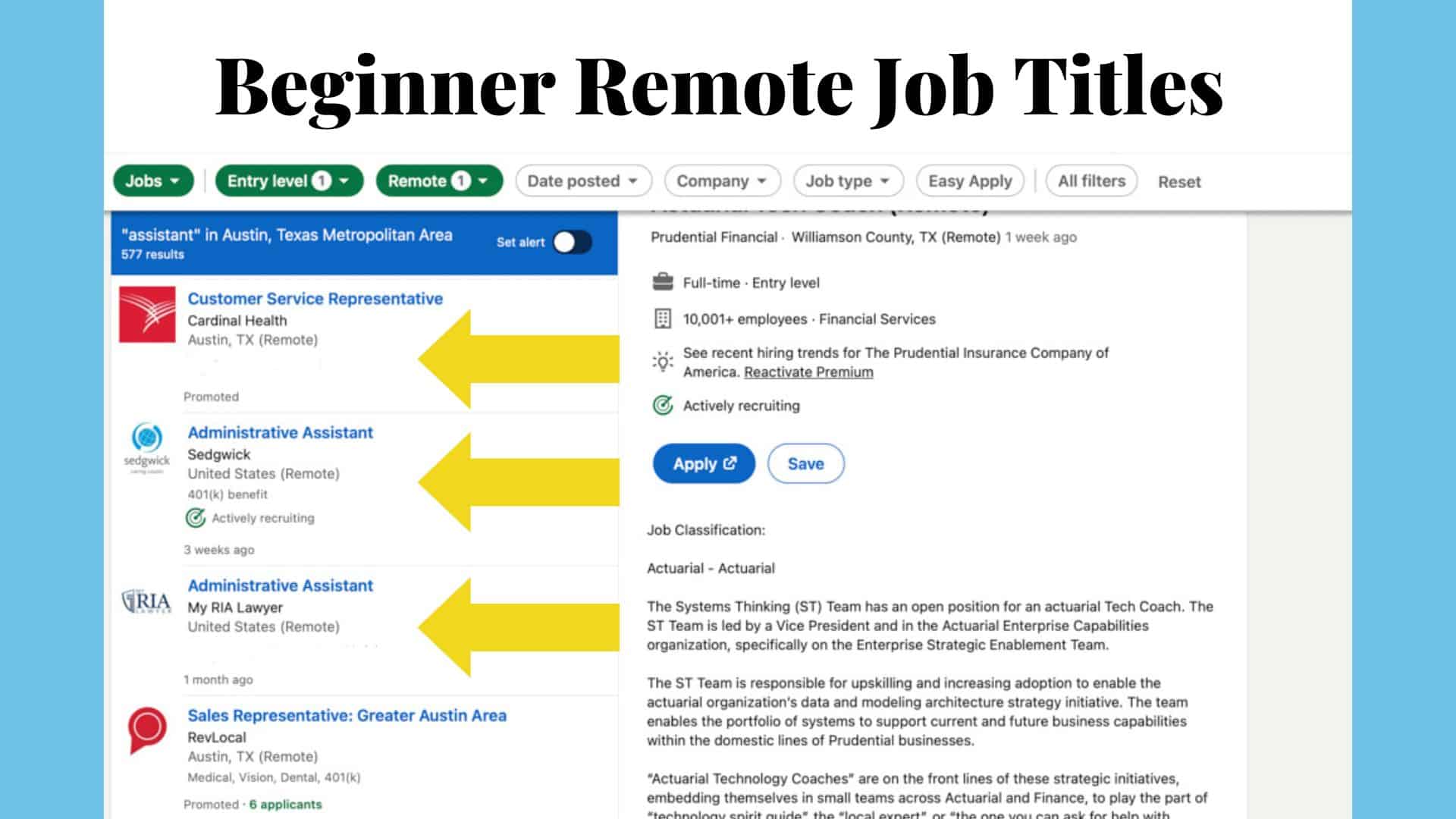Throughout my time running World Embark, I have worked in every office environment that one can imagine, full-time, part-time, in-person, fully-remote, hybrid, fully in-person, etc. The amount of people I worked with has varied from eight to several thousand, and I have even worked within both the public and private sector. I am super thankful for most of the experiences I have had so far. BUT there are some things I wish I knew before I started a remote-first career straight out of college.
Look, I understand the allure of Instagram, TikTok, and other Social Media. We were young, wanting to explore, and being a remote worker seems like a great way to do that. However, if you are just starting out your career, you might want to hold off on becoming a remote worker initially. Instead, here’s why you should start out your career fully in-office.
Table of Contents
You Don’t Know What You Are Escaping From
I think everyone has heard the cliche, “I did it to escape the 9-5. I couldn’t imagine myself in the cubicle everyday.”
However, if you start your life solely working remotely, you may not be able to relate to those people. Working 40+ hours a week in a cubicle for 52 weeks per year is not a physical grind, but rather a mental one. This experience teaches grit, determination, and follow-through. But the threat of returning to their previous lifestyle is also a great motivator, too, during the lean times.
There’s More Work in the Beginning of your Remote Career
More so for freelancers and digital nomads, building up a portfolio, resume, and CV geared towards remote-work is exhausting. (If you want to read the difference on how World Embark defines remote work versus digital nomadism, please start here.)
You will need to pitch articles to websites and face numerous rejection letters. It’s almost as if you are applying for a job over, and over, and over again.
No Auto-Pilot/Coasting
There is not a Pret or Starbucks on the street corner where you can purchase your daily coffee. There is not a cubicle where your mind can shut-off to the outside world. You can meal-prep, but you will still have to take out your own trash.
Everything you do requires you to be on.
For example, let’s talk about coffee. You will need to boil the water in a kettle. Use the French Press, Instant Coffee, or whatever process you use. Then, wait for the coffee to cool because the temperature is too high. Wash your dishes after you are done drinking the coffee, etc, etc, etc.
I think this is very apparent during the holiday season, too. While most people are slowing down their lifestyle, 9/10 positions that are fully-remote will actually increase their production. (With a lull in January because of taxes.)
You’re not a SME
*SME= Subject Matter Expert
Most people in their 20’s or 30’s are in the prove it stage with their employer. But even then, your first job is less about the actual job and more about learning about the career field.
For example, your first remote job might be data entry, making powerpoints, or even grant management if you work in non-profit work. And there are great titles such as Program Assistant, Operations Specialist, or Special Assistant.
I recognize that these titles don’t exactly appeal to new entrants in the job market. However, I have a little secret that should help.
Employers don’t actually care about your first job title.
Instead, employers care about your learning in that field, accountability, self-reflection, and if you have specific, contextual knowledge that can only be answered in water-cooler conversations.
Once the second or third job happens, you will realize that you cannot have the famed answer “I don’t know.” Yes, even if you just started a month ago.
So, if you are first starting out post-college, enjoy the longer onboarding process. Because you will not get it again.
City Life is Cheaper
Contrary to popular opinion, I do not believe that remote workers have similar, gross salaries to their in-person counterparts. (If I had to imagine, it’s going to be between 20-50% less by 2026.)
Why do I think this?
The recent, post-pandemic research of remote worker salary is a very limited sample size. And if we enter into a recession in the next 1-3 years, companies are going to start budget cuts as soon as possible. They will start with layoffs and then focus on remote-worker salaries. I predict that employers will begin offering locality bonus pay, similar to the US Federal Scale System. But if they find out you moved without telling them, this will be a fireable offense.
At this time, living in a city might actually be cheaper!
If you have debt from university loans, personal loans, or any other reason, you need to think hard about your location as a remote worker. Namely, because living in a city is often the same amount, if not cheaper, when you complete the entire math equation.
If you live in a city with an in-person job, there might be some non-tangible benefits such as free food or coffee at the office. Plus, you will be able to utilize public transportation. Let’s go ahead and do a gross salary exercise.
Gross Salary Exercise
- Scenario #1: 26 Year Old Male Living in Washington DC with a $60,000
- Scentario #2: 26 Year Old Male Living in Burlington, VT with a $48,000 salary.
Washington DC
- $5,000 per month – $2400 (Rent) – 500 (Groceries) – 300 (Health Insurance) – 400 (Miscellaneous Expenses) = $1400
Burlington VT
- $4,000 per month – $1,600 (Rent) – 400 (Groceries) – 400 (Health Insurance) – 300 (Car) – 200 (Care Insurance) – 400 (Miscellaneous Expenses) = $700
(Potential) Tax Issues
Another plug for money issues. However, there are two potential tax issues as a first-time remote worker. Both require hyper-specific knowledge about the tax industry of your home country. For this section, I am going to focus on the US tax code.
#1: Examine Your Hiring Mechanism
I have heard of a growing number of remote workers not hired under the classification of employees, but instead consultants or contractors.
I vehemently disagree with this strategy personally, but from the business perspective, it’s genius.
If you are hired as an independent contractor, please keep in mind that you will need to withhold money for the Self-Employment Tax. (Medicare and Social Security)
Additionally, there is no promise of extra benefits such as health insurance, a 401k, or disability insurance.
#2 Think About Your Location
U.S. lawcode is still figuring out what to do with remote workers. However, I expect a similar ruling to follow precedent established with Comptroller of the Treasury of Maryland v. Wynne et. ux.
To make it very short as this is speculative, you cannot be taxed on the same income twice by each state.
Potential Scenario
Let’s re-visit Vermont and face a hyper-specific question.
I deliver food for Uber-Eats, live in Vermont where 95% of my deliveries occur, and I am a resident of the state. However, dinner time rolls around, and my phone pings for a pick-up in New Hampshire. The delivery is a few miles away, but it is also still in New Hampshire.
Regarding precedent, this income is actually taxed at New Hampshire taxes instead of Vermont taxes.
Potential Scenario #2
The same thing could happen if you are an independent contractor. A client flies you down to Florida, and 50% of the job is completed in Florida. Technically, you earned this income in Florida. So, half of your income goes to the State of Florida and the other half goes to the State of Vermont.
Travel & Status Benefits
If you plan on becoming a digital nomad later and there are rumors that you could travel for your job, start off in-person.
As you travel throughout the business world, you don’t have to pay for your flights, hotels, or food. PLUS, you get status points for free.
Once you eventually transition over to the digital nomad world, you are going to realize that hostels are not the best working environments. And then you can use those points for more luxury accommodations, pay for some travel, etc.
It’s just a small thing now, but it will save you potentially thousands later.
Networking
Despite my absolute love for holiday parties, I still believe that in-person networking is 21x better than remote networking. (Sorry, LinkedIn)
Impromptu conversations typically have more fluidity, they are usually more personal, and the attendees are much more likely to be anyone from the CEO to you. Unfortunately, scheduled virtual happy hours are not like this.
Plus, with in-person events, you will be working on your professional and public speaking. You can never have enough public speaking experience.
Loneliness
Similar to the salary research, I think I contradict most surveys. I think there is something to be said about loneliness and remote workers.
I firmly believe that humans are social creatures, and that we build stronger bonds with in-person people instead of remote friends. This means deeper friendships, meaningful connections, and some great conversations.
If you live in extremely far North or South Countries, depending on the time of year, this and extreme shifts in the amount of sunlight you receive could result in an extreme seasonal depression. I know for me, I wake up and open up the windows. However, I never see the sun once I get off of work.
How To Make Friends as a Remote Worker
- Sign up for Adult Social Sports Leagues (Volo offers many sport leagues in the U.S.)
- Work in Co-Working Spaces
- Move Into a Place with Roommates
- Read How to Make Friends in a New City!
4 Month Wall
Whether you are traveling the world or working the 9-5, the four month wall (for some people, the three month wall) is going to hit. And if you are a recent college graduate who started working remotely, the idea of a semester or quarter system certainly doesn’t help.
The four-month wall could look like:
Getting bored at your job because it’s repetitive and you feel like an expert.
You have no idea what you are doing and you don’t feel like anyone is explaining anything.
A growing level of apathy towards your interests outside of work and a hyper-fixation on the problems in your personal life.
If you are a first-time, remote worker who has never experienced any of these problems, I think you are going to wonder, “What is Happening?” And especially if you are getting bored, there might be a tendency to move to a different career path too quickly.
Remote Workers are Viewed as “Not as Productive”
I believe that there’s a generational misconception about the productivity of remote workers. For example, my old boss’s boss’s boss (boss x3??) believed that remote workers were not as productive as in-office employees.
Certainly, there are some stories out there about people working three, full-time remote jobs and collecting three paychecks that just further exacerbate the conversation.However, I have found that I personally am more productive at home versus in the office.
In the office, I may be in a meeting and somebody comes up to ask a question. But if I am at home, I can just focus on the meeting. Or I can put in my earbuds and just grind while listening to music
How to be viewed as a productive “remoter worker”
- Schedule Weekly One-on-Ones
As a remote worker, you will probably not need daily check-ins with your supervisor. However, for the first couple of weeks, a one-on-one is going to be instrumental for a productive onboarding experience.
Bring up projects you are working on, problems that you have noticed that you have been able to fix, and show that you’re contributing to the team in a beneficial way
- Complete Projects ASAP
For the first couple of months, complete your assigned projects as soon as possible. And if people are relying on your section to begin their own projects, get it done even faster.
I have two warnings.
- Make sure to maintain your work/life balance
- Don’t establish expectations that you cannot maintain later. (Working harder for a short period of time is fine. But not when it leads to a 24/7 on-call experience.)
It’s on You!

Whenever something goes awry, it’s on you if something goes wrong.
Growing up in a rural area without cell phone coverage, it was very common that the electricity or internet went out. So much so, I remember that our internet was down for over a week at one point. Wild, I know.
However, these are just a few things that you will need to consider if you decide to work from home.
- Internet Connectivity
- Time Zone Changes
- Other Computer Issues
- Knowing Which Tools and Apps You Plan on Using
- Investing in Furniture such as a Standing Desk
Work/Life Balance
One of the biggest issues I see amongst new remote workers is work/life balance. I have seen people answering emails at 3 AM and checking their phone while they are at a Happy Hour. And this was an in-person job.
Word of Advice: Work/Life Balance is even more difficult for Remote Workers.
There is no commute that allows you to decompress if you work from home that day.
And if you have kids, it can be slightly frustrating if your kids come up and bother you if you’re on a phone call with your boss. (But bosses should be flexible about this.)
So, here are some ideas to maintain a good work/life balance
#1 Use Different Cell Phone / Laptops
Sometimes, employers will send you a laptop or phone. If they offer it, say yes!
#2 Use Different Web Browsers / Screen Time
Use Chrome for your personal life, then you can use something like Microsoft Edge for work! Learn how to create some divisions.
Then, if you have a phone, input in screen Time for Slack or Google Calendar. For example, my phone has all notifications but off emergency notifications for anything past 5:30PM!
#3 Go For a Walk/Exercise at the End of Your Workday
There is nothing better at the end of the day than going for a walk.
#4 If you have kids
If there’s a perfect answer to this one, please let me know.
Eye Strain
Blue Light
Having a blue-light filter, whether built into your computer or purchased afterwards via glasses or screens is integral for your sleep schedule.
If you are a freelancer and focus on late-night sessions, this will help.
Staring at the Screen
Whenever you stare at a computer screen for 12+ hours a day like me, you will start to notice some eye strain.
It might take the form of blurry vision, maybe twitching eyes, or just random things the body does, but it’s not healthy physically to sit in front of a computer for a long period of time.
Remote Worker Resume
I know we have talked about the uniqueness of remote workers in regards to taxes, but you really need to be careful when crafting your work from home resume.
There’s a lot of uniqueness if you’re not thinking about it, such as
- Make Sure to Remote Only on your resume
- Put Limited Term or Contract Laborer if you are an independent contractor
- Making Sure You Put all of your skills and languages (Even internships)
- Learn How to Sell Yourself
Other Digital Nomad Posts

How Remote Work Helps Employers
Looking to hire globally? Or maybe an employee proposed switching to a remote position? You wonder about salary and what tax strategies exist?

10 European Countries with Digital Nomad Visas (EU)
What are ten places in Europe that you can move to, today?

Passive Income Ideas To Afford Traveling
What is passive income and how can I travel for as long as possible are some of the first questions people ask themselves when they start.



